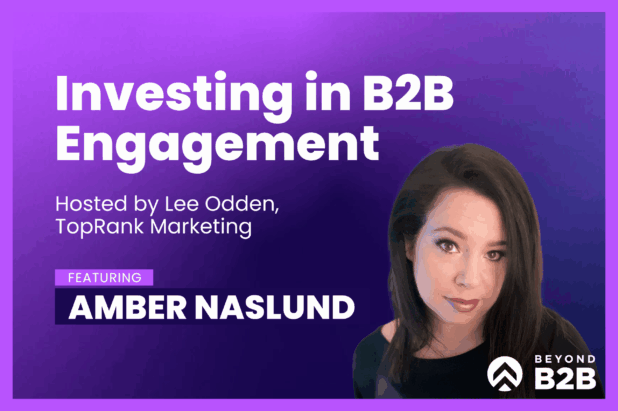
As the search marketing industry continues to feel the sting of Google narrowing down what passes as acceptable search marketing practices, more practitioners find themselves having to defend the channel. This is more true with SEO than Search Advertising, but for many, search marketing isn’t exactly the poster child it once was.
But that’s not how the panel of digital marketers we polled from major corporations including Optum, General Mills, Bank of America, Carlson, Dell, IBM and AOL see it. Their view is far more optimistic.
As companies begin to plan their strategic marketing initiatives, it can be tough sorting through the “propaganda” from search engines and search marketers alike. I’m a fan of going to the source whenever possible for clarity on marketing trends and besides your own data, what better source than companies making choices about marketing budgets, developing strategy, implementing tactics and defending marketing performance on a daily basis?
As a follow up to my previous post asking several brand marketing practitioners about what digital marketing really means, here’s a collection of insights on where search fits in the future of digital marketing.

I’m starting to come back around to loving organic search. But not for all of the gamesmanship, algorithms, or the warm fuzzy feeling you get when you watch your hard-working keyword proudly stand alone in first position after a three-month dogfight. Organic search is trying to hold us accountable for creating better content – and it might be working. Search holds a critical role in the future of digital because our success as content marketers boils down to: 1) Can they find it? 2) Did they read it? The future of search is an increasingly accurate humanoid bot that gives you a virtual tl;dr by dumping you on page 6. In the future, Search Marketing will be our Chief Editor.
Ryan Arnholt (@ArbenAngstrom) Director, Digital Marketing at Optum

Search is a powerful integration play. Marketers are utilizing search volume as a data point for activation plans and factoring in SEO opportunities as they create content.
Amy Lamparske (@amylamparske) Director, Digital and Social Media at General Mills

Search will continue to be a go-to resource for customers to solve problems, find answers, discover solutions and self-educate. It will become more intertwined with traditional advertising, media mix modeling and social while garnering greater attribution in customer paths to conversion.
Scott Gardner (@newmediascott) Senior Vice President, SEO and Content Channel Lead at Bank of America

In the future world of intelligent apps that proactively and intuitively search for information on behalf of consumers, organic search will become increasingly crucial.
Rachael Marret (in/rachaelmarret) SVP, Customer Engagement at Carlson Rezidor Hotel Group

Every minute, there are over 500 websites added to the internet. We’re doubling the amount of content online at break neck speed. We’ll create more content this year than we did in the last 10 combined (I’m sure more than that, but I can’t find the stat). 5 billion more people will come online in the next decade… that’s a lot of new content. We’re adding new gTLDs to provide more diversity and depth to the digital experience. Soon, we’ll see some innovative uses for .brand and .product. How are we going to find anything?
SEO will play an increasingly valuable role in the way content is discovered and consumed. However, it will probably look very different in the next decade. Many people forget how new search and SEO really is to the average user. Most digital marketers are still thinking in terms of keywords, but consumers are getting more conversational. Search is getting smarter and more effective at understanding the nuances of a user’s requests and serving them not only the results they are looking for, but in an experience that helps them better discover and learn.
The term “big data” is thrown around too frequently and without context. However, I think consumers will see the biggest value of big data in search results. Instead of returning pages of results, users will be provided with precise content and have the opportunity to drill deeper as needed. Results will fragment and provide varying degrees of discovery, from what your friends think to how your own historical, personal data integrates with what you are searching for.
Mobile and NLP is driving us toward quick, immediate responses and results. This will create challenges in SEO as we’ll need to be smarter about how content is found and the level of effort required to piece together all elements in the customer journey. As a result, content strategies will evolve to be less about what the site can do for me and more about what the user can do for themselves using the information you’ve provided. The days of passive browsing are over and that requires a much more agile and nimble experience that changes by the minute.
Kevin Green (@KevinMGreen) Executive Director, Marketing at Dell (client)

Search marketing increases in importance as algorithms for search evolve into powerful predictive models based on complex algorithms of individual propensity, behavior and intent.
Tami Cannizzaro (@tamicann) Vice President of Marketing at IBM

They’ll be components of the future of digital. Search is and has always been evolving, while we may reach a point where the search engines are able to automagically determine what you want, they’re still going to need inputs, they’re still going to need to know what a page is about, what a site is about, what’s important to users, etc. so it’ll continue to evolve and marketers will continue to go with the flow. We’ve seen the same form of evolution happening within social, and we’ll see the same evolution happen with whatever’s next, but search marketing will still play a role for some time to come.
Simon Heseltine (@SimonHeseltine) Senior Director, Organic Audience Development at AOL
Digging in to this topic deeper, I gave the opening keynote presentation at the first Minnesota Search Marketing Association conference on this topic, offering perspectives on the value of search marketing from a strategic and customer focused perspective (vs. keywords, links and rankings). The presentation outlines a buyer experience focused model that emphasizes multi-channel and integrated marketing as well as how search marketing fits in that mix.
According to a study from Accenture Interactive, CMO’s predict that digital will account for more than 75% of their marketing budget over the next 5 years. More importantly, 79% do not believe their company will be ready.
This evolution towards digital and the uncertainty around it is a tremendous opportunity for experienced search marketers. Search has continuously changed in the 16+ years I’ve worked in the industry. Talented search marketing practitioners that have opened their eyes and minds to a more strategic view represent some of the most important assets a company can have for solving complex marketing problems that demand performance and accountability.
Whether your business is “all in” with content marketing, social media or an integrated mix, those companies that tap into the power of search marketing to deliver customers to brand content at the exact moment of need will see a distinct advantage now and in the future. Grown up search marketing is earning grown up results.
What about you? Are you optimistic about search marketing in the future of your digital marketing mix? Better yet, are you equally optimistic (or not) about Search Advertising as you are about SEO?
Top Photo: Shutterstock


